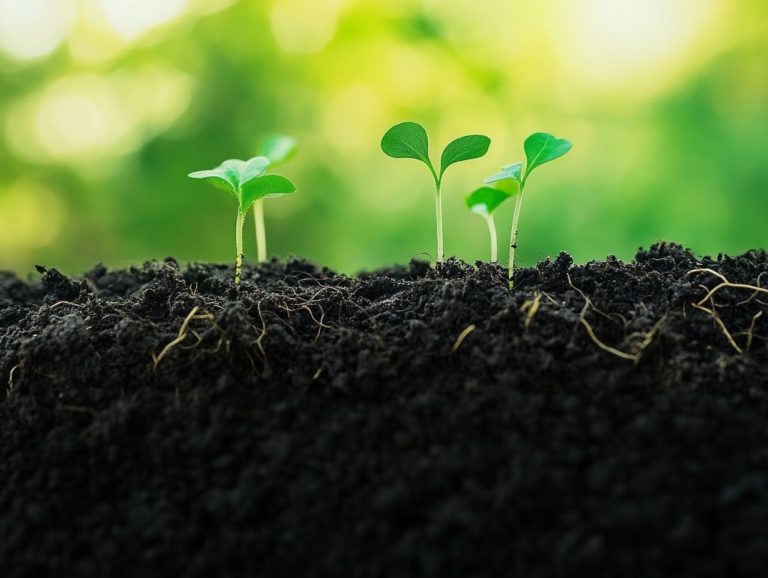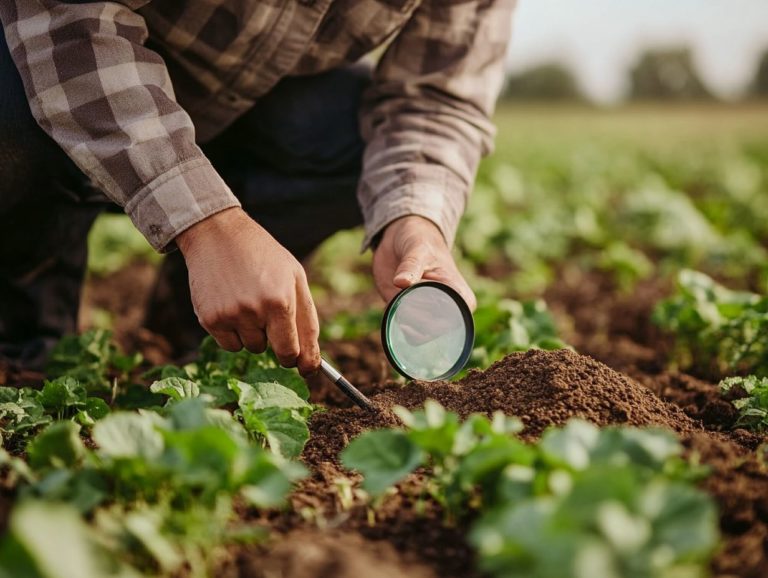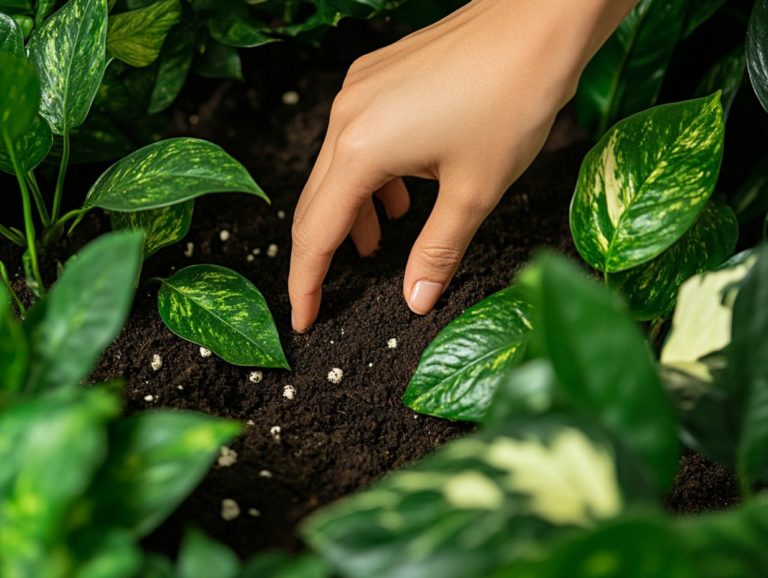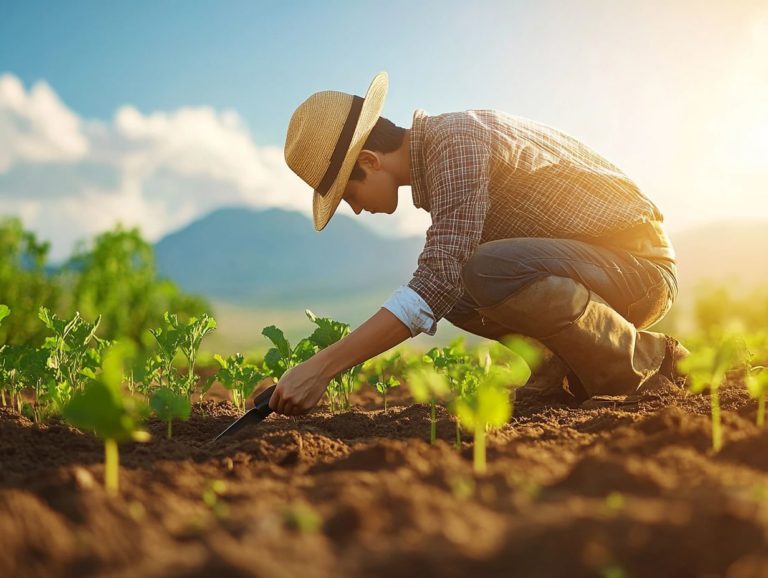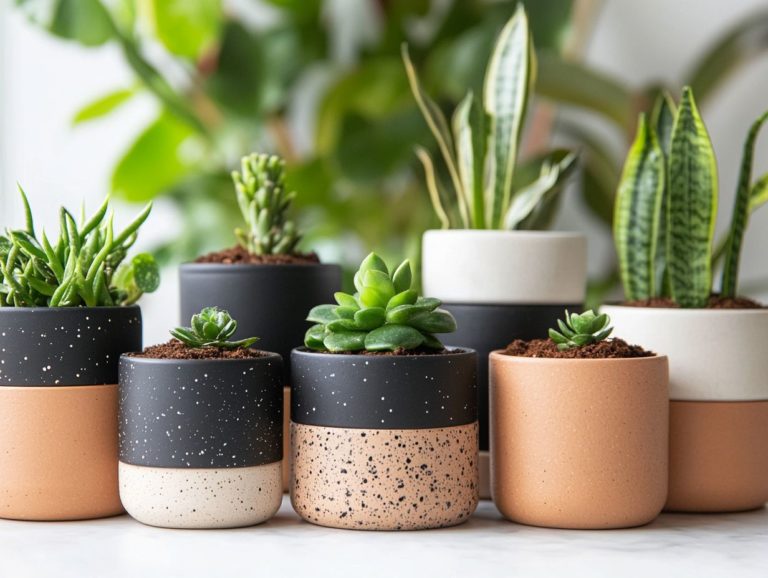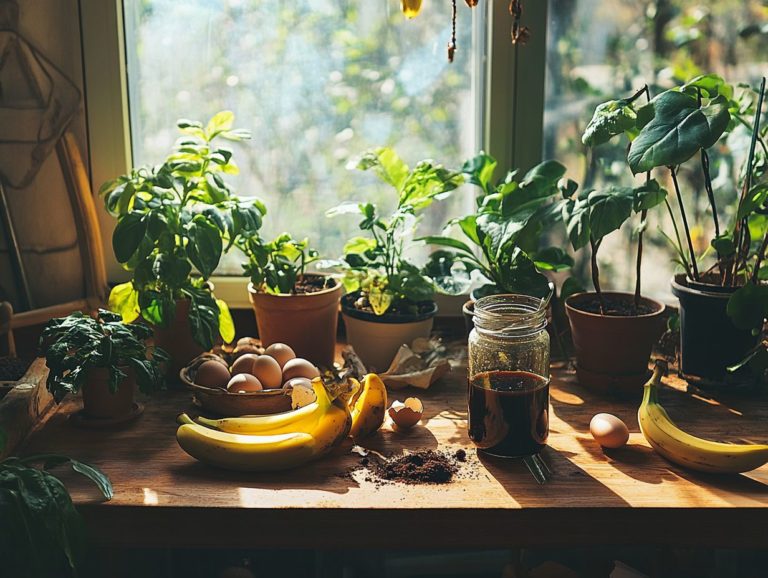Why Soil Quality Matters for Indoor Plants
Soil quality greatly affects the health of your indoor plants. But what makes soil good or bad?
This article explores how soil impacts plant growth. You’ll learn to recognize signs of poor soil and find solutions for common problems.
Discover effective ways to improve soil health. Our expert tips will guide you in picking the best mix for your plants!
Get ready to transform your indoor garden!
Contents
- Key Takeaways:
- Understanding Soil Quality
- The Importance of Soil Quality for Indoor Plants
- Impact on Plant Growth and Health
- Signs of Poor Soil Quality
- Identifying and Addressing Soil Issues
- Improving Soil Quality for Indoor Plants
- Choosing the Right Soil for Indoor Plants
- Frequently Asked Questions
- Why is soil quality important for indoor plants?
- What are the signs of poor soil quality for indoor plants?
- How can I improve soil quality for my indoor plants?
- What are the best types of soil for indoor plants?
- Can soil quality affect indoor air quality?
- How often should I check and maintain soil quality for indoor plants?
Key Takeaways:
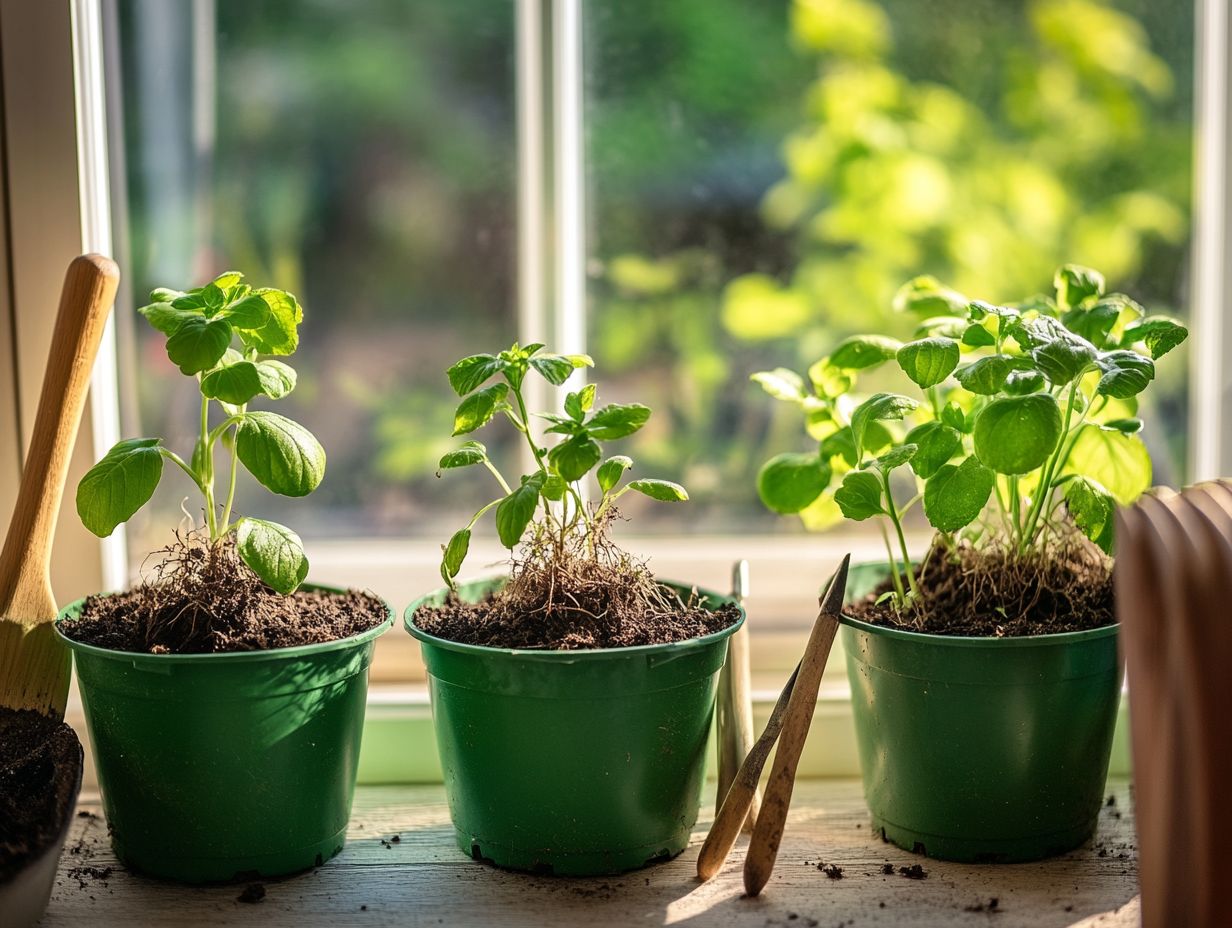
- Healthy soil is essential for indoor plant growth and health.
- Poor soil quality can lead to stunted growth, nutrient deficiencies, and pest infestations.
- Investing in good quality soil and regularly checking and improving soil health can greatly benefit your indoor plants.
Understanding Soil Quality
Understanding soil quality is vital for nurturing healthy indoor houseplants. It directly impacts how well the soil can hold water, how roots grow, and the overall health of your plants.
The ideal soil for your indoor plants includes ingredients like potting mix a special type of soil for potted plants, peat moss, and organic matter. These elements work together to create the right environment for growth while allowing for proper drainage and aeration, which means allowing air to reach the roots.
When selecting potting soil, pay close attention to its nutrient-rich properties and soil pH. Aim for a well-draining blend that keeps your plants’ moisture levels just right. This solid foundation will help you understand what constitutes good or bad soil and enhance the care for your beloved houseplants.
What Makes Soil “Good” or “Bad”?
The distinction between good and bad soil is crucial in indoor gardening. It significantly impacts the health and growth of your houseplants.
Good soil retains moisture without becoming waterlogged. This ensures your plant roots receive optimal hydration while allowing excess water to drain away, so your leafy friends don’t drown. It s also rich in nutrients that your plants need to grow.
Conversely, poor-quality soil can lead to compacted layers that stifle air circulation, making it hard for roots to access essential elements.
To enhance soil quality, consider these amendments:
- Compost for a boost in organic matter,
- Perlite for improved aeration,
- Peat moss for better water retention.
By incorporating these elements, you can create a more suitable growing medium that supports a thriving indoor garden.
The Importance of Soil Quality for Indoor Plants
Soil quality is a cornerstone of successful indoor gardening. It significantly influences the health and vitality of your plants. Choosing high-quality potting soil ensures optimal drainage and water retention, which are essential for strong root growth and effective nutrient absorption.
Understanding soil quality helps you choose the right type of potting soil for your diverse indoor plants, whether they are succulents, orchids, or aroids. This knowledge paves the way for flourishing indoor gardens that truly thrive.
Impact on Plant Growth and Health
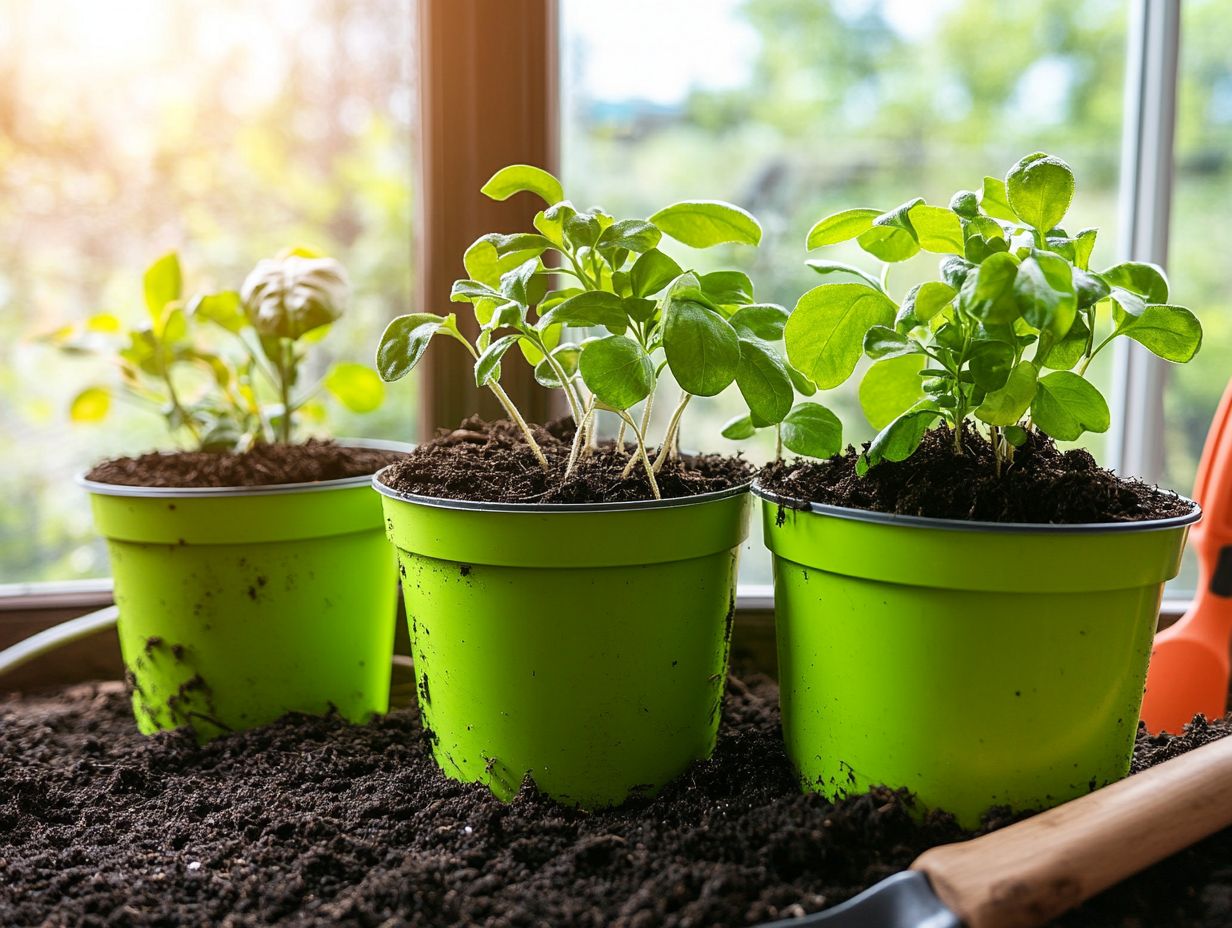
Soil quality plays a crucial role in plant growth and health. Healthy soil is the bedrock of your indoor gardening success.
When you have healthy, well-draining soil, you foster robust root growth. This allows your indoor plants to efficiently absorb moisture and nutrients.
Understanding how organic fertilizers and soil amendments affect soil composition can elevate your plants’ vitality. This approach can significantly enhance their longevity.
If your soil lacks essential nutrients or has poor drainage, your plants may face serious challenges. These include nutrient deficiencies, which can result in stunted growth or yellowing leaves.
Poor soil structure can lead to waterlogged conditions. This may ultimately cause root rot and put an end to otherwise thriving plants.
Act now to tackle these issues and watch your plants thrive! Incorporate organic fertilizers, such as compost or worm castings, to enrich your soil profile.
These organic amendments replenish depleted nutrients. They also improve soil aeration and enhance moisture retention, creating an ideal environment for various indoor plants.
Signs of Poor Soil Quality
Recognizing the signs of poor soil quality is crucial for you as an indoor gardener. This awareness is essential for maintaining vibrant plants and ideal growing conditions.
Symptoms like wilting leaves and stunted growth often reveal deeper soil issues. These issues may relate to moisture retention, aeration, or nutrient deficiencies.
Keep an eye on soil pH, which indicates the acidity or alkalinity of your soil. Observe your plants behavior to pinpoint potential problems before they spiral out of control.
Identifying and Addressing Soil Issues
Identifying and addressing soil issues is essential for the vitality of your indoor plants. Many challenges arise from imbalances in moisture, nutrients, and drainage.
Utilizing a soil pH meter allows you to gauge your potting soil’s acidity or alkalinity. Monitoring moisture levels can uncover potential drainage concerns.
Timely intervention can rectify these issues, ensuring that your indoor plants not only survive but thrive. By regularly checking these factors, you become proactive in managing your indoor garden.
If you discover poor drainage, amend the soil with perlite or coarse sand. This significantly enhances airflow and water movement.
For nutrient deficiencies, incorporating organic fertilizers replenishes vital elements like nitrogen and potassium. Consider using moisture-retentive materials like coconut coir to maintain adequate moisture levels.
If you notice leaf yellowing, it may signal a nutrient imbalance. Addressing this with a balanced feed can swiftly restore vigor.
Each of these strategies serves as a stepping stone toward cultivating resilient and flourishing indoor greenery. You’re well on your way to creating a thriving indoor garden!
Improving Soil Quality for Indoor Plants
Improving soil quality is essential for anyone passionate about indoor gardening. It can profoundly elevate the growth and vitality of houseplants.
By integrating premium potting mix and thoughtful soil amendments, you enhance moisture retention. This also promotes optimal aeration and supplies your indoor plants with vital nutrients.
Employing techniques like precise fertilization and bolstering drainage will pave the way for a flourishing indoor garden. Transform your space into a vibrant green oasis!
Methods for Enhancing Soil Health
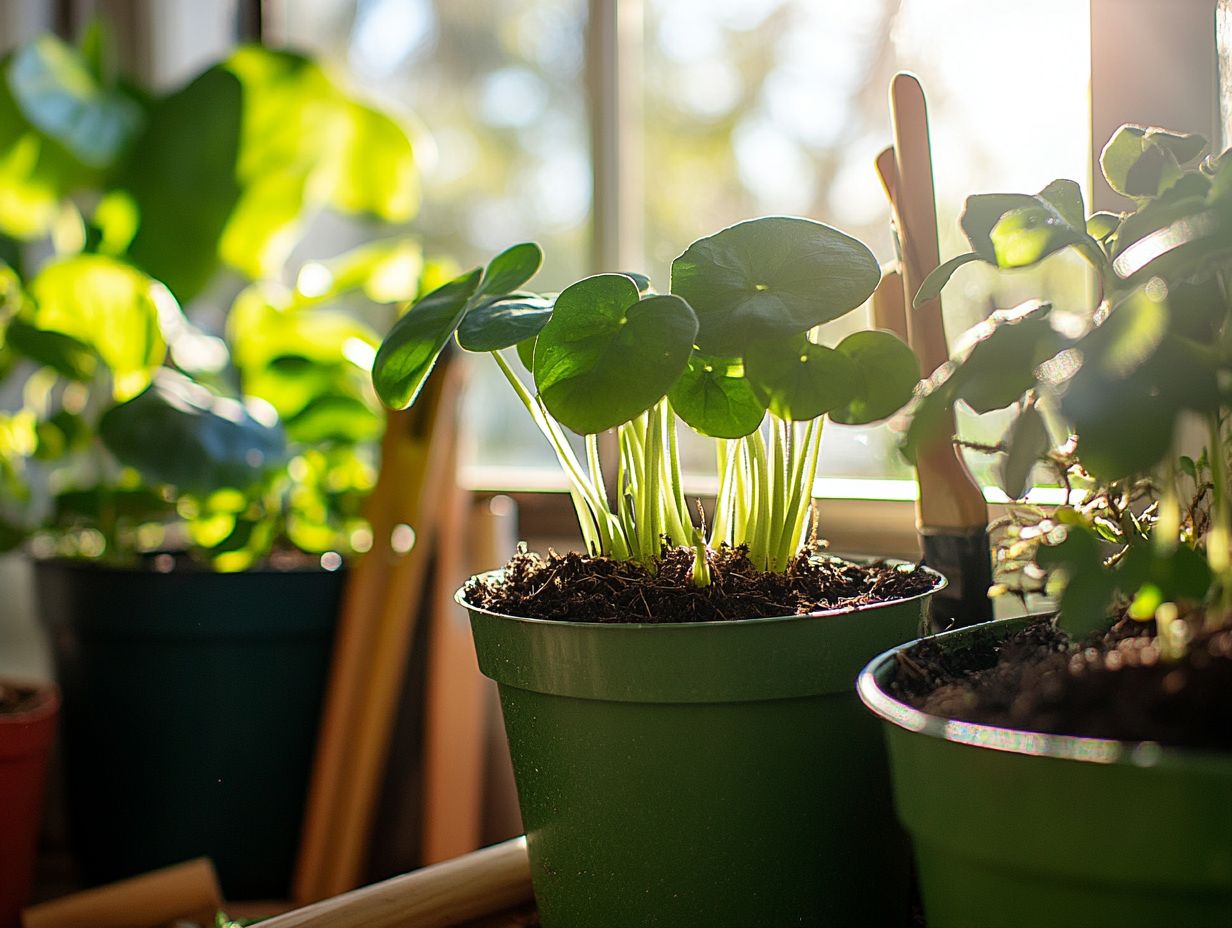
Enhancing soil health involves several effective methods that can elevate the vitality of your indoor plants. By incorporating compost and organic matter, you can improve soil structure, boost moisture retention, and introduce beneficial microorganisms that support plant growth.
Using soil amendments like vermiculite and coconut fiber enhances aeration and drainage, ensuring healthier roots and stronger plants.
Techniques such as crop rotation and cover cropping can significantly bolster your soil’s health over time. Aeration is crucial in preventing compaction, allowing roots to breathe and facilitating optimal nutrient uptake.
For those caring for indoor gardens, practices like regularly turning the soil or using a soil aerator can make a remarkable difference. Maintaining consistent moisture levels is vital; adding mulch helps retain moisture and reduce evaporation, ensuring your plants receive adequate hydration between waterings.
By adopting these strategies, you promote robust growth and create a thriving environment for your indoor plants, transforming gardening into a more rewarding experience.
Choosing the Right Soil for Indoor Plants
Choosing the right soil for your indoor plants is a crucial step towards ensuring their health and longevity. Consider important factors like soil pH, nutrient content, and drainage capabilities, as they influence the success of your indoor gardening.
Selecting a well-draining potting mix tailored to the specific needs of your plants creates the ideal growing conditions for a diverse range of houseplants, from succulents and cacti to orchids and aroids.
Factors to Consider When Selecting Soil
When selecting soil for your indoor plants, keep these key factors in mind to ensure they grow healthy and strong:
- Moisture retention capabilities
- Drainage properties
- Consider if you need to add amendments to boost nutrient availability
Understanding the specific requirements of each houseplant, including their preference for well-draining or moisture-retentive soils, helps you make informed choices that benefit your greenery.
For example, succulents thrive in well-draining mixes that prevent root rot, while tropical plants enjoy soils that retain moisture. Balancing compost, perlite, and peat can significantly impact the absorption of water and nutrients. Poor pH levels and low organic matter content can hinder nutrient uptake.
Taking time to research your houseplants’ specific needs not only helps you choose the perfect potting soil but also enables you to adjust with appropriate amendments, creating a thriving indoor ecosystem to be proud of.
Frequently Asked Questions
Why is soil quality important for indoor plants?
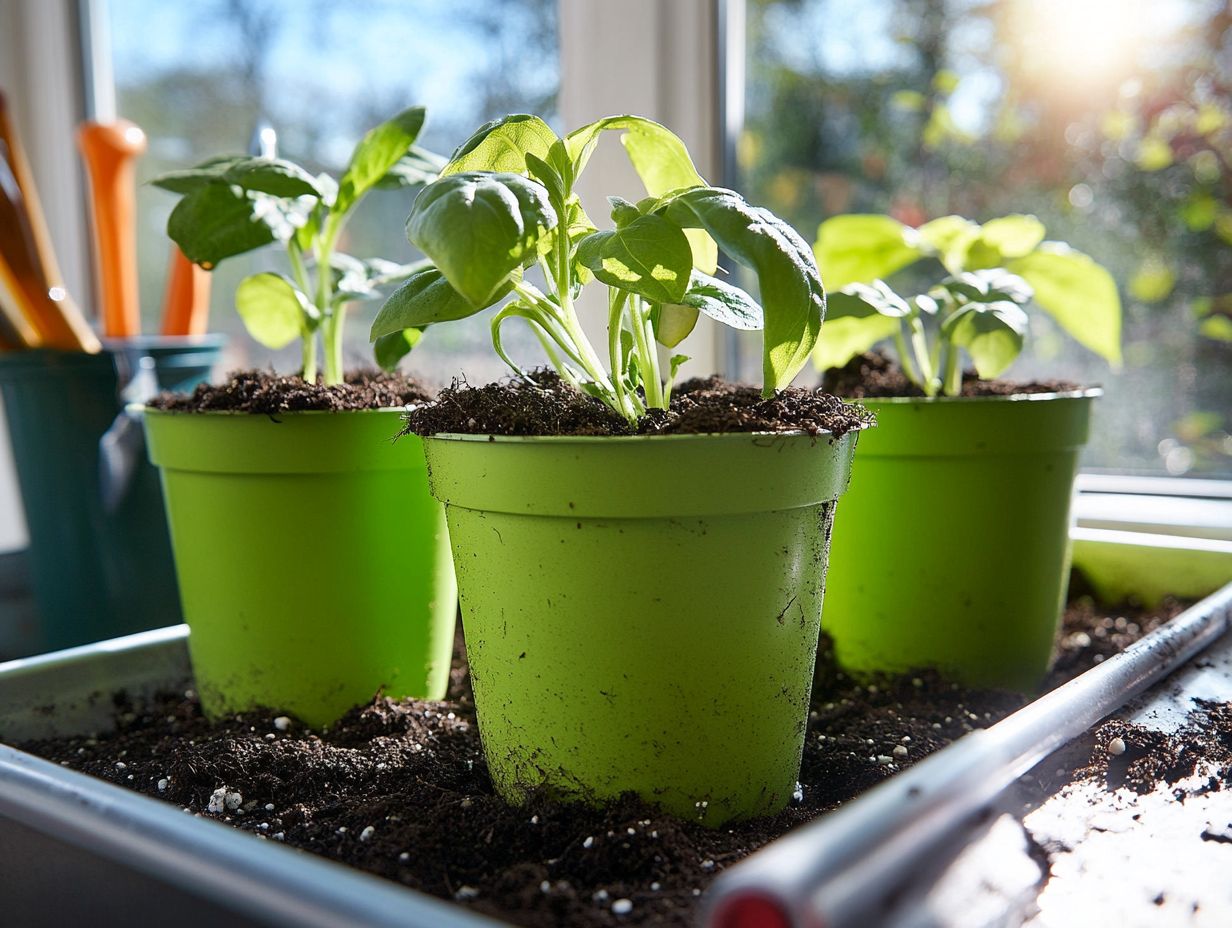
Healthy soil boosts indoor plant growth and overall health. Quality soil provides necessary nutrients and proper drainage, while poor-quality soil can lead to stunted growth, nutrient deficiencies, and plant diseases.
What are the signs of poor soil quality for indoor plants?
Signs of poor soil quality include slow growth, yellowing or wilting leaves, and a build-up of salts or minerals on the soil’s surface. If the soil is too compact or drains poorly, it can lead to root rot and other issues.
How can I improve soil quality for my indoor plants?
Transform your indoor garden today by improving soil quality! Add organic matter, such as compost or peat moss, to provide nutrients and enhance drainage. Use a soil test kit to determine the pH and nutrient levels in your soil, and adjust accordingly.
What are the best types of soil for indoor plants?
Indoor plants thrive in well-draining, nutrient-rich soil with a balanced pH. Popular options include potting mix, cactus mix, and African violet mix. You can also create your own mix using peat moss, perlite, and vermiculite.
Can soil quality affect indoor air quality?
Yes, poor soil quality can harm the air indoors. Soil holds tiny living things that can release harmful gases like methane and ammonia. Contaminated soil with chemicals or pesticides can also lead to air quality issues.
How often should I check and maintain soil quality for indoor plants?
Check soil quality every three to six months. This helps you spot problems early and make necessary adjustments. Regular maintenance, like adding fertilizer and aerating the soil, keeps your plants happy and healthy.

